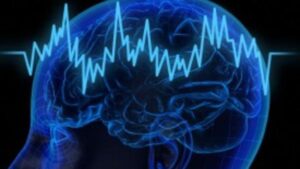A deep and restful sleep not only helps you feel more alert and refreshed the next day but also brings certain health benefits, including improved brain function, prevention of heart disease, diabetes, and Alzheimer’s.
1. Stages of Sleep
Typically, sleep has two main types: REM sleep (rapid eye movement) and NREM sleep (non-rapid eye movement). Your sleep cycle begins with NREM sleep and ends with REM sleep. This cycle occurs approximately every 90 minutes and continues throughout the night.
Stage 1: This is the first stage of NREM sleep when the entire body and brain begin to transition from a state of wakefulness to rest (sleep). This stage lasts only a short time, about a few minutes, until the body gently enters sleep. However, this is also the stage where you are most easily awakened compared to other stages in the sleep cycle.
Additionally, in the early stage, some important functions of the body, such as respiration, heart rate, and eye movement, show signs of slowing down. Meanwhile, the muscles also relax and loosen, sometimes twitching slightly. At this time, brain activity along with the stimulation of the body’s senses decreases, causing brain waves to slow down compared to before.

Stage 2: is the next stage of NREM sleep. During this stage, you will sleep deeper and longer. The muscles continue to relax, brain waves slow down, body temperature decreases, and eye movement stops.
Stage 3: is the stage of deep sleep, also known as slow-wave sleep (SWS) or delta sleep, which usually occurs around 45-90 minutes in. At this time, breathing and heart rate are at their lowest point in the sleep cycle.
Additionally, the eyes and muscles are relaxed, and brain waves are even slower compared to the previous stages. When you are in deep sleep, it is very difficult to be awakened even by loud noises.
Stage 4: this is the stage of very deep sleep, accounting for about 20% of total sleep time. At this point, the body is in a completely restful state, with almost all brain waves being slow delta waves.
Furthermore, heart rate, respiration, blood pressure, and body temperature also drop to the lowest possible levels. The eye, leg, and arm muscles no longer move. When awakened during this stage, you will feel groggy, sluggish, and it may take a few minutes for the body to return to a normal state.
Stage 5: is the final stage of the sleep cycle, where you will transition into REM sleep. During this time, the body will be in a state that is almost more awake compared to other stages. Although the eyelids are closed, the eyes still move back and forth. Brain waves also begin to operate again, resembling brain waves when awake. Additionally, respiration and heart rate increase. You will experience dreams during the REM stage.
2. What benefits does deep sleep provide?
Deep sleep holds a very special position for overall human health. This is also why it is considered the most important stage in the sleep cycle.
A deep sleep significantly improves brain functions, including the ability to gather and retain information or store beautiful memories. Moreover, this stage allows the brain to rest and relax after a long, tiring day, while also replenishing energy in the form of glucose for the new day ahead.
In addition, the deep sleep stage has the ability to balance the body’s hormones, especially the growth hormone produced by the pituitary gland, which is beneficial for tissue development and cell regeneration. Therefore, getting enough sleep is essential to ensure these functions occur smoothly and effectively.
Every day, you should sleep enough for 7-9 hours to give your body ample time for deeper sleep stages. When the body does not get enough sleep, the cycles will occur more quickly for sleep to reach the deepest level and maintain that stage longer.
Regularly sleeping insufficiently will negatively affect brain functions, especially memory issues. At that point, information will be received more slowly, making it difficult to create new memories. Over time, this condition can lead to some serious health problems, such as Alzheimer’s disease or heart disease.
3. How does shallow sleep affect health?
Typically, NREM sleep accounts for about 75%, with the remainder for REM sleep. During the total sleep time, about 13-23% is deep sleep. This stage is essential for young people as they need more deep sleep for comprehensive physical growth and development.
When experiencing sleep deprivation or shallow sleep, you may encounter the following issues:
- Heart disease
- Stroke
- Diabetes
- Alzheimer’s disease
- Some disorders such as sleepwalking, night terrors, or bedwetting
4. Measures to help you sleep better
If you often wake up in the middle of the night and find it difficult to fall back asleep, here are some ways to improve this condition:
Do not stare at the clock: checking the time frequently will only increase stress when you are trying to fall asleep. It is best to turn the clock away from your line of sight.
Turn off devices with light: The light from electronic devices can affect the quality of sleep and cause you to wake up. If you wake up to drink water, use the restroom, or have a light snack, it’s best to keep the light at a low intensity. In particular, blue light from phone or computer screens should also be turned off before going to bed.
Change your diet: You should increase the intake of foods containing healthy fats and limit the consumption of carbohydrates.
Relaxation: Some ways to help you relax your body before sleeping include:
- Deep breathing
- Meditation
- Imagining the sounds, images, and scents of a peaceful place
- Muscle stretching exercises
- Reading
- Listening to music
- Taking a hot bath
Other measures include:
- Avoiding alcohol and caffeine in the evening
- Reducing pressure and stress
- Using medication as prescribed by a doctor, such as antidepressants.

